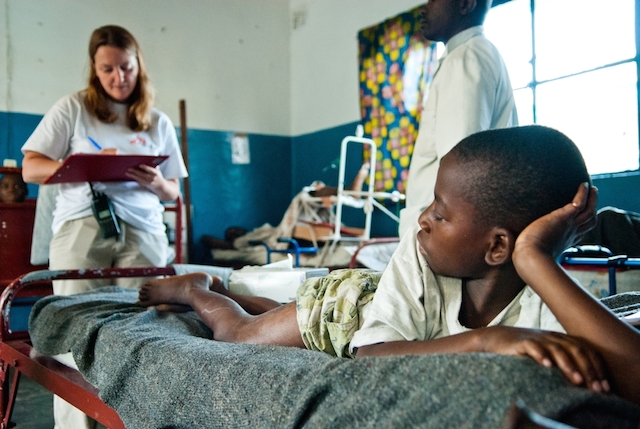Silvia Dallatomasina, Italian surgeon, on her round in the Masisi Hospital wards.
More than 5 million people are believed to have died since the war in eastern Congo started. About a million and a half people have fled their villages and live in displaced camps. Following an upsurge in fighting, MSF began assisting Masisi hospital and providing medical care for the populations in the camps around Masisi in mid-2007. The hospital has seen a rapid increase in patients. Recognised as a weapon free and neutral place, it is filled with patients from different ethnic groups and even from numerous warring factions. Critical services on offer include surgery for war-related trauma and care for victims of sexual violence. Every day, MSF mobile teams penetrate deep inside the province, often crossing the front-lines. They provide medical care on site but transport urgent cases back to Masisi hospital. Due to the insecurity and the bad road conditions, patients often only try to go to the hospital when it is a matter of life or death, and when their condition has dramatically deteriorated. Therefore, many cases need to go to surgery. Silvia Dallatomasina, surgeon, MSF in Masisi Hospital: ìWhen patients finally get here, their health is already very compromised, with ulcers that are quite difficult to treat, with huge masses that the doctors have never seen before. We also have patients with very old wounds. They arrive with infected wounds that require surgery to clean the wound and prevent very complicated infections.î Every week, patients with bullet wounds are seen and treated.
One of the difficulties faced by the medical teams is that patients, once discharged, not often return for their medical follow-up. Because of the insecurity and logistical problems, they avoid travelling. Ahmed Tijany Dem, Medical Coordinator, MSF: ìPeople are afraid of being trapped in the fighting. There are factions, some that are rebelling and others that are defending themselves, so the

